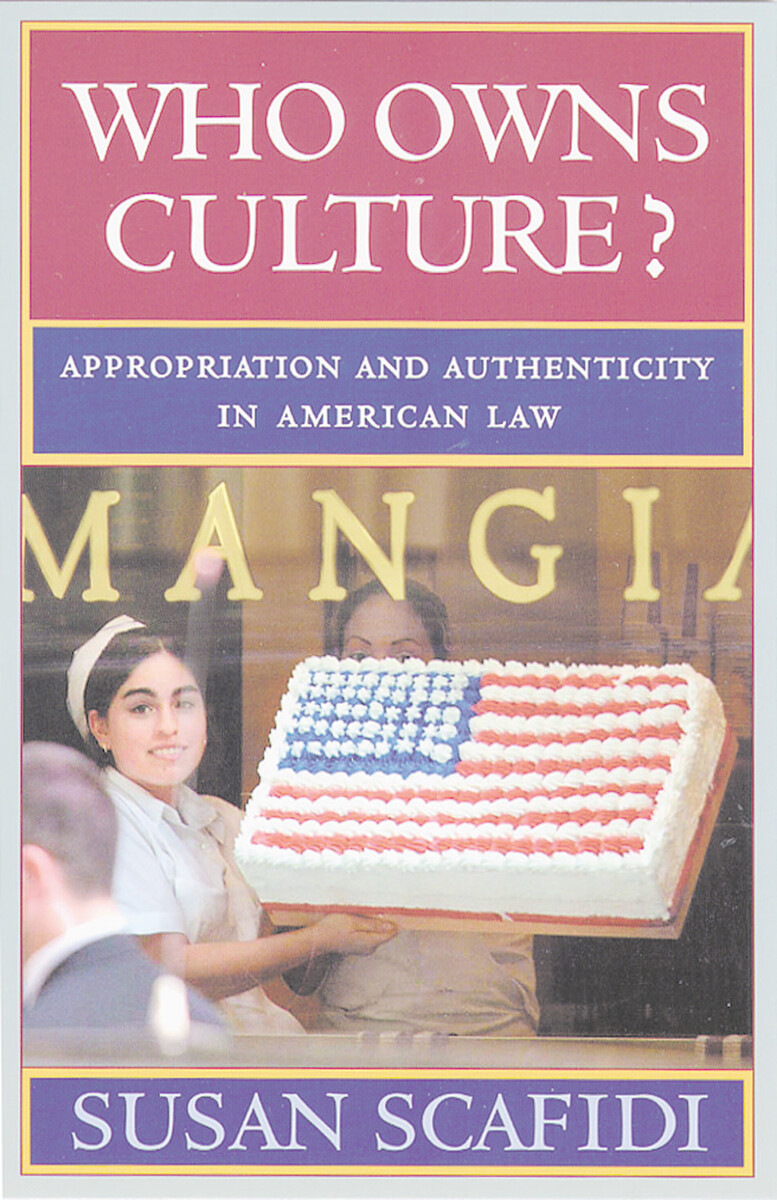Who Owns Culture?: Appropriation and Authenticity in American Law
Rutgers University Press, 2005
eISBN: 978-0-8135-8940-4 | Cloth: 978-0-8135-3605-7 | Paper: 978-0-8135-3606-4
Library of Congress Classification KF2979.S28 2005
Dewey Decimal Classification 346.73048
eISBN: 978-0-8135-8940-4 | Cloth: 978-0-8135-3605-7 | Paper: 978-0-8135-3606-4
Library of Congress Classification KF2979.S28 2005
Dewey Decimal Classification 346.73048
ABOUT THIS BOOK | AUTHOR BIOGRAPHY | TOC
ABOUT THIS BOOK
It is not uncommon for white suburban youths to perform rap music, for New York fashion designers to ransack the world's closets for inspiration, or for Euro-American authors to adopt the voice of a geisha or shaman. But who really owns these art forms? Is it the community in which they were originally generated, or the culture that has absorbed them?
While claims of authenticity or quality may prompt some consumers to seek cultural products at their source, the communities of origin are generally unable to exclude copyists through legal action. Like other works of unincorporated group authorship, cultural products lack protection under our system of intellectual property law. But is this legal vacuum an injustice, the lifeblood of American culture, a historical oversight, a result of administrative incapacity, or all of the above?
Who Owns Culture? offers the first comprehensive analysis of cultural authorship and appropriation within American law. From indigenous art to Linux, Susan Scafidi takes the reader on a tour of the no-man's-land between law and culture, pausing to ask: What prompts us to offer legal protection to works of literature, but not folklore? What does it mean for a creation to belong to a community, especially a diffuse or fractured one? And is our national culture the product of Yankee ingenuity or cultural kleptomania?
Providing new insights to communal authorship, cultural appropriation, intellectual property law, and the formation of American culture, this innovative and accessible guide greatly enriches future legal understanding of cultural production.
While claims of authenticity or quality may prompt some consumers to seek cultural products at their source, the communities of origin are generally unable to exclude copyists through legal action. Like other works of unincorporated group authorship, cultural products lack protection under our system of intellectual property law. But is this legal vacuum an injustice, the lifeblood of American culture, a historical oversight, a result of administrative incapacity, or all of the above?
Who Owns Culture? offers the first comprehensive analysis of cultural authorship and appropriation within American law. From indigenous art to Linux, Susan Scafidi takes the reader on a tour of the no-man's-land between law and culture, pausing to ask: What prompts us to offer legal protection to works of literature, but not folklore? What does it mean for a creation to belong to a community, especially a diffuse or fractured one? And is our national culture the product of Yankee ingenuity or cultural kleptomania?
Providing new insights to communal authorship, cultural appropriation, intellectual property law, and the formation of American culture, this innovative and accessible guide greatly enriches future legal understanding of cultural production.
See other books on: Authenticity | Culture and law | Indigenous peoples | Intellectual property | Material culture
See other titles from Rutgers University Press




















